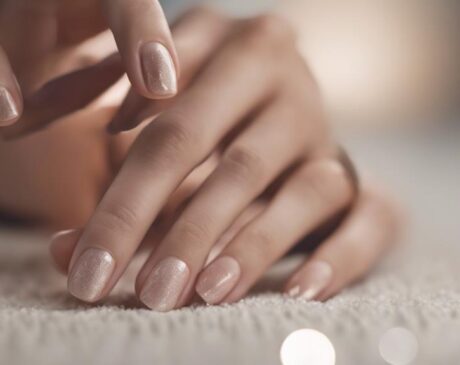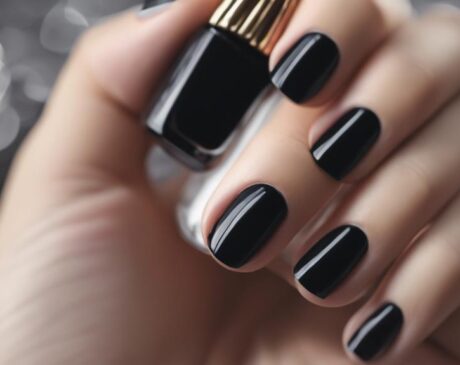Why Do Nail Salons Drill Your Nails?
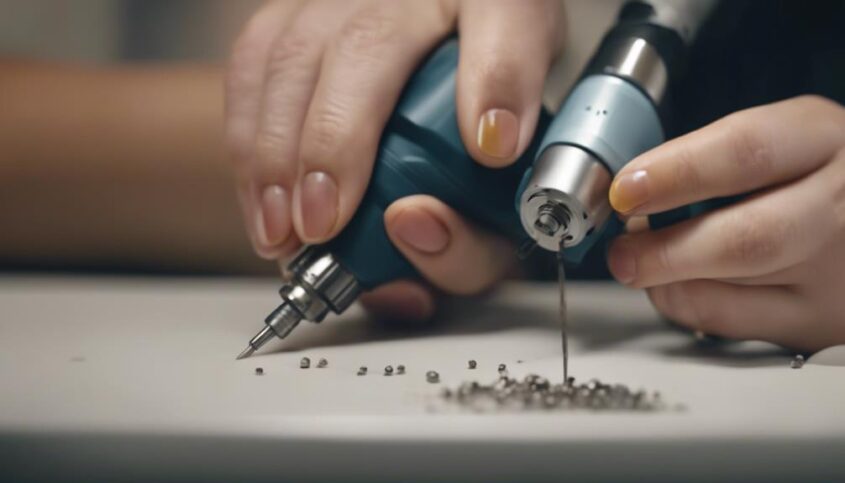
Wondering why nail salons drill your nails? It's all about precision, smoothness, and efficiency in nail care. Drilling helps achieve even surfaces, precise shapes, and expert polish. Different drills like electric, cordless, and specialty bits cater to specific needs. Safety measures ensure a comfortable experience. Techniques like back-and-forth and circular motions perfect your nails. Alternatives like glass files and buffers suit gentler care. Understanding why drilling is done can enhance your nail salon visit.
Key Takeaways
- Achieve smooth and even nail surfaces efficiently.
- Shape nails precisely and remove ridges for a polished finish.
- Aid in gel or acrylic extension removal effectively.
- Thin down thicker nails for manageability and aesthetics.
- Explore various nail drill techniques for desired results.
Benefits of Nail Drilling
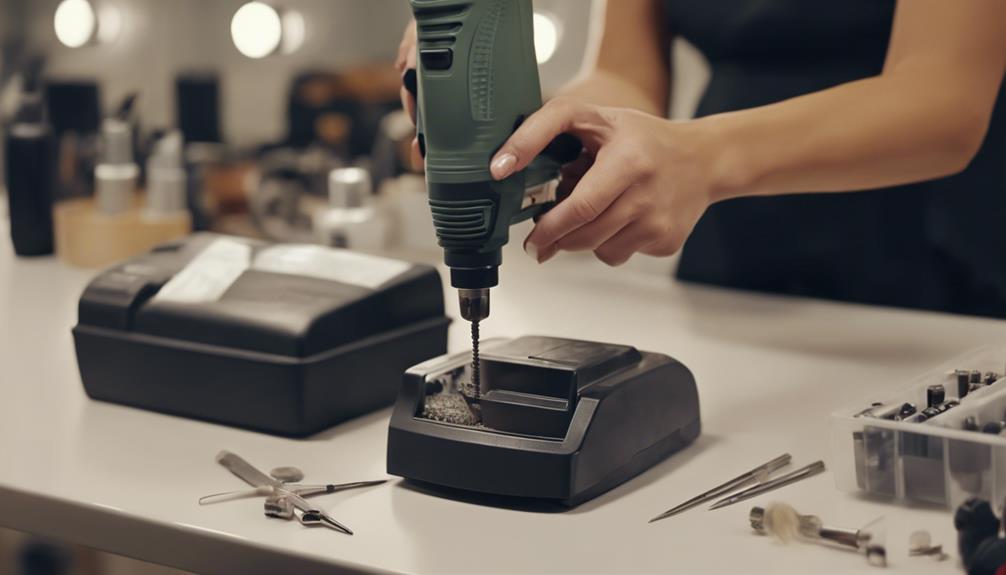
If you're wondering why nail salons drill nails, the benefits of nail drilling may surprise you. Nail drilling can help achieve a smooth and even surface for your nails, ensuring that your manicure looks flawless. It can also help in shaping nails precisely and quickly, giving you the freedom to choose the exact style you desire. By drilling the nails, technicians can remove any ridges or imperfections, resulting in a polished and professional finish.
Furthermore, nail drilling can aid in the removal of old gel or acrylic extensions, saving you time and effort during a nail enhancement removal process. It can also be beneficial for individuals with thicker nails, as it can help in thinning them down to a more manageable and aesthetically pleasing thickness. Overall, nail drilling offers a range of benefits that cater to those seeking efficient and customized nail care treatments.
Types of Nail Drills
When looking at types of nail drills, you'll find a variety of options designed to cater to different nail care needs. Nail drills come in various shapes and sizes, each serving a specific purpose to help you achieve the nail look you desire. Here are some common types of nail drills you might encounter:
| Type of Nail Drill | Description | Best Use |
|---|---|---|
| Electric Nail Drill | Powered by electricity, adjustable speed | Professional nail technicians, at-home use |
| Cordless Nail Drill | Battery-operated, portable | Travel-friendly, home use |
| Carbide Nail Drill Bit | Durable, suitable for acrylic nails | Acrylic nail removal, shaping |
| Diamond Nail Drill Bit | Long-lasting, great for natural nails | Smoothing, shaping natural nails |
| Ceramic Nail Drill Bit | Gentle, reduces heat | Finishing touches, cuticle care |
Each type of nail drill has its advantages, so choose the one that best fits your needs and preferences for a customizable nail care experience.
Safety Measures During Nail Drilling
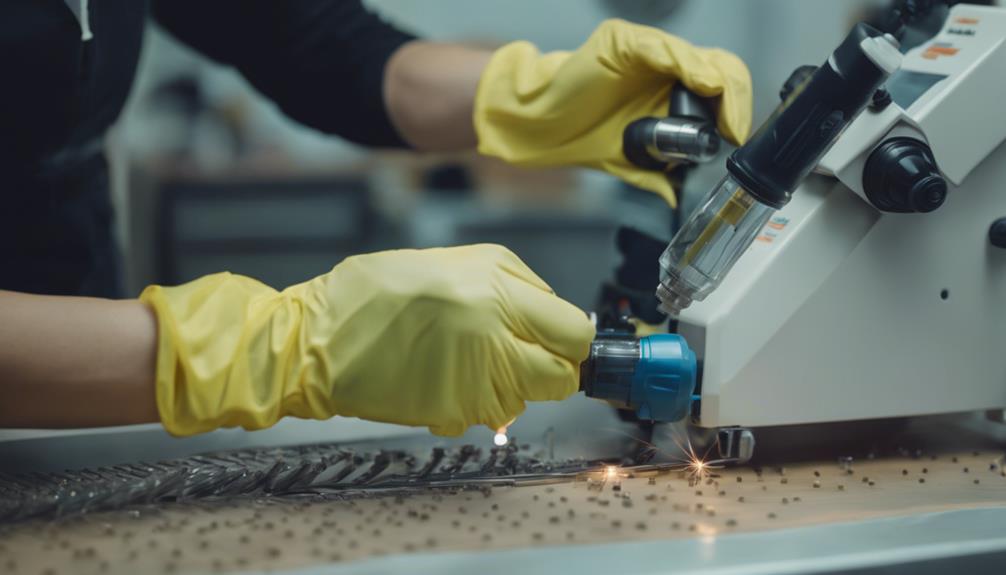
To ensure safe nail drilling, always wear protective eyewear to shield your eyes from any debris. Safety goggles or glasses will keep your eyes safe from flying nail dust or accidental nail filings. Additionally, make sure that the nail salon you visit follows proper sanitation practices by using clean and sterilized drill bits for each client. This helps prevent the spread of infections and ensures a hygienic environment for your nail service.
Before the nail drilling begins, communicate openly with your nail technician about your preferences and any concerns you may have. Feel empowered to ask questions about the drilling process and share any discomfort you might feel during the procedure. Your technician should prioritize your comfort and safety throughout the nail drilling process.
Nail Drill Techniques Explained
Exploring various nail drill techniques can enhance the precision and efficiency of your nail services. By understanding different methods, you can find the ones that work best for you and your clients. Check out the table below for a quick overview of some common nail drill techniques:
| Technique | Description | Benefits |
|---|---|---|
| Back-and-Forth | Moving the drill in a back-and-forth motion | Efficient for shaping nails |
| Circular | Rotating the drill in circular motions | Smoothens nail surfaces |
| Up-and-Down | Using an up-and-down motion with the drill | Great for removing old polish |
Experimenting with these techniques can help you achieve the desired results in less time. Remember, practice makes perfect, so don't be afraid to try out different approaches until you find what works best for you. Enjoy the freedom to explore and refine your nail drilling skills!
Alternatives to Nail Drills
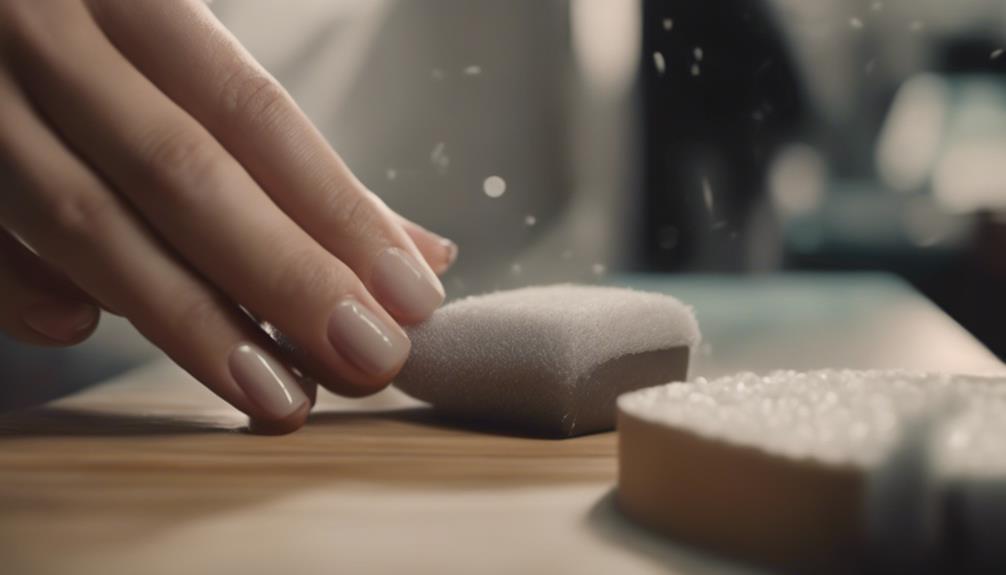
Looking for alternatives to nail drills can enhance your nail care experience and provide a gentler approach to nail maintenance. If you prefer a more natural route, consider using a high-quality glass or crystal nail file. These files are gentle on your nails, reducing the risk of damage and maintaining the integrity of your nail tips. Emery boards, made from materials like cardboard and sandpaper, are also effective options that allow you to shape and smooth your nails without the need for drilling.
Another alternative is electric nail files, which offer a less aggressive way to file and shape your nails compared to traditional drills. These devices usually have adjustable speeds, allowing you to customize the intensity based on your nail care needs. Additionally, manual buffing blocks can help smooth out ridges and polish the surface of your nails without the use of a drill.
Exploring these alternatives can give you the freedom to care for your nails in a way that aligns with your preferences and promotes healthier nails in the long run.
Frequently Asked Questions
Can Nail Drilling Cause Long-Term Damage to the Nails?
Drilling your nails at the salon can lead to long-term damage if done excessively. It's crucial to communicate with your nail technician about the frequency and pressure of drilling to maintain healthy nails.
Is Nail Drilling Recommended for People With Sensitive or Weak Nails?
If you have sensitive or weak nails, nail drilling might not be recommended as it can cause damage. Prioritize gentle care like moisturizing, using nail strengtheners, and avoiding harsh treatments that can exacerbate any existing issues.
Are There Any Specific Medical Conditions That Would Make Someone Unsuitable for Nail Drilling?
If you have medical conditions like fungal infections, psoriasis, or thin nail plates, nail drilling might not be suitable for you. Always consult with a professional to ensure your safety and comfort.
How Often Should Someone Get Their Nails Drilled?
You should get your nails drilled based on personal preference and the condition of your nails. Listen to your nail technician's advice, but ultimately, it's up to you. Remember, healthy nail care is key.
Can Nail Drilling Affect the Overall Health of the Nails and Surrounding Skin?
Nail drilling can impact the health of your nails and surrounding skin. It's essential to consider potential risks and consult with professionals. Protect your nail health by staying informed and making informed decisions.


